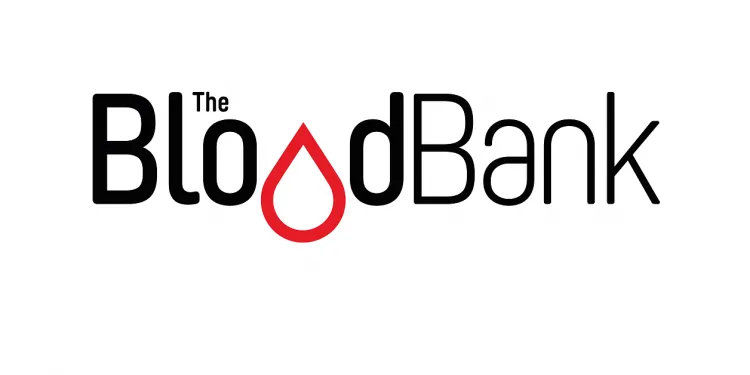Blood Banks in Gopalganj, Bihar
Blood is one of the most essential components in modern medicine. It is a life-saving resource that has no substitute. Every day, thousands of patients across India rely on blood transfusions to survive, whether due to surgeries, trauma, anemia, cancer treatments, or childbirth complications. In this context, blood banks serve as vital pillars of the healthcare system. In districts like Gopalganj, Bihar, where medical infrastructure is gradually developing, the role of blood banks becomes even more critical.

Understanding the Role of Blood Banks
Before achieving the status of an independent district, Gopalganj was a part of the historical Saran district, which was one of the oldest administrative divisions in Bihar. Saran district had extensive jurisdiction, encompassing several towns and subdivisions, including present-day Gopalganj. However, due to administrative and governance requirements, a decision was made to carve out Gopalganj as a separate district, ensuring better management and development of the region. On October 2, 1973, this vision was realized, and Gopalganj officially came into existence as an independent district. Since then, the district has celebrated October 2nd as its foundation day, commemorating its transition into a distinct administrative unit.
Blood Banks in Gopalganj: An Overview
The district headquarters of Gopalganj is located in the town of Gopalganj itself. As the central hub of governance and administration, the headquarters houses key government offices, judicial institutions, and civic amenities that serve the region. The district administration ensures the smooth implementation of policies, infrastructure development, and welfare programs aimed at improving the living standards of the residents.
Sadar Hospital, Gopalganj Blood Bank
Address: Ward No. 15, Gopalganj, Bihar 841428
Phone: 06156-224754
Mobile: 09431283852, 9431218340, 9431057935, 9430421353
Nodal Officer: Dr. Prakash Chandra Sinha (MBBS)
Mobile: 9431283852
Category: Government
License No.: 76(N)/04
Blood Components Available: Currently, blood components are not available .
This government-operated blood bank is a primary facility catering to a large number of patients, especially those from economically weaker sections. It operates under the guidance of the Bihar State Blood Transfusion Council and is equipped to store and screen blood.
Tapashya Hopewell Hospital Blood Centre
Address: Yadopur Road, Lakhpatiya More, Gopalganj, Bihar
Phone: 9431893100
Email: tapashyafoundation@gmail.com
Category: Private.
This private blood centre serves the local population and collaborates with nearby hospitals to provide blood transfusion services.
The Healthcare Landscape in Gopalganj
Gopalganj, located in the northwestern part of Bihar, is a district that has seen gradual improvements in its healthcare infrastructure. Though not as developed as metropolitan areas, Gopalganj has several government and private hospitals, primary health centers, and community health centers serving a large rural population. However, healthcare challenges still persist due to limited infrastructure, medical personnel, and emergency services.
One of the most pressing challenges in the district is the availability of safe and timely blood transfusion services. For a long time, patients in need of urgent blood transfusions had to travel to neighboring districts like Siwan, Bettiah, or even to larger cities like Patna. This often caused delays that proved fatal in many cases. However, things have begun to change in recent years with the establishment of local blood banks and increased awareness about voluntary blood donation.
Government Initiatives and Improvements
The government of Bihar, along with the National AIDS Control Organization (NACO) and State Blood Transfusion Council, has taken steps to improve blood banking services. These include:
Upgrading district hospitals with licensed blood banks.
Encouraging blood donation through awareness programs and incentives.
Linking blood banks to a centralized system for better tracking and coordination.
Setting up e-RaktKosh, an online platform that provides real-time information about blood availability across hospitals and banks.
In Gopalganj, such initiatives are slowly taking root, aided by local health officials and volunteers. Integration of Sadar Hospital’s blood bank with e-RaktKosh is a step forward in improving transparency and efficiency.
Community Participation: The Key to Progress
A significant transformation can only occur when the local community participates actively. In Gopalganj, several youth groups and NGOs have started organizing blood donation camps in colleges, religious places, and markets. Events held on days like World Blood Donor Day (June 14) help generate buzz and awareness.
Social media platforms have also become useful tools for organizing emergency blood donation and connecting donors with recipients. Local WhatsApp groups and Facebook pages often serve as informal networks during urgent cases.
Conclusion
This government-operated blood bank is a primary facility catering to a large number of patients, especially those from economically weaker sections. It operates under the guidance of the Bihar State Blood Transfusion Council and is equipped to store and screen blood.

